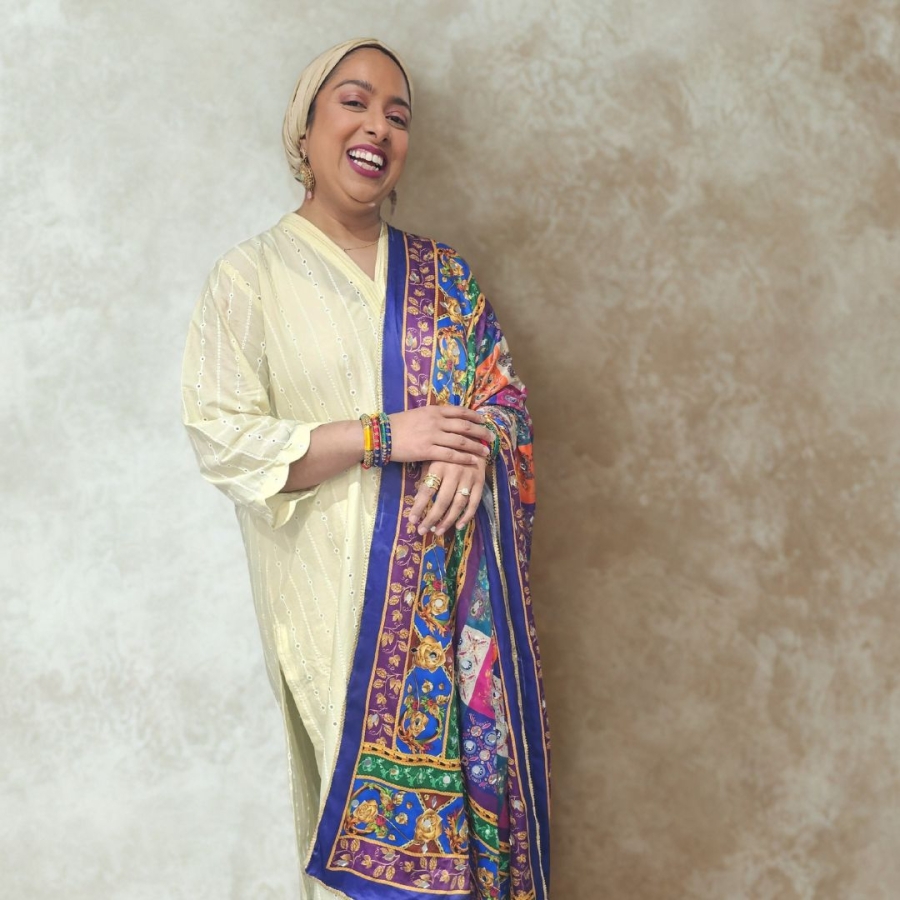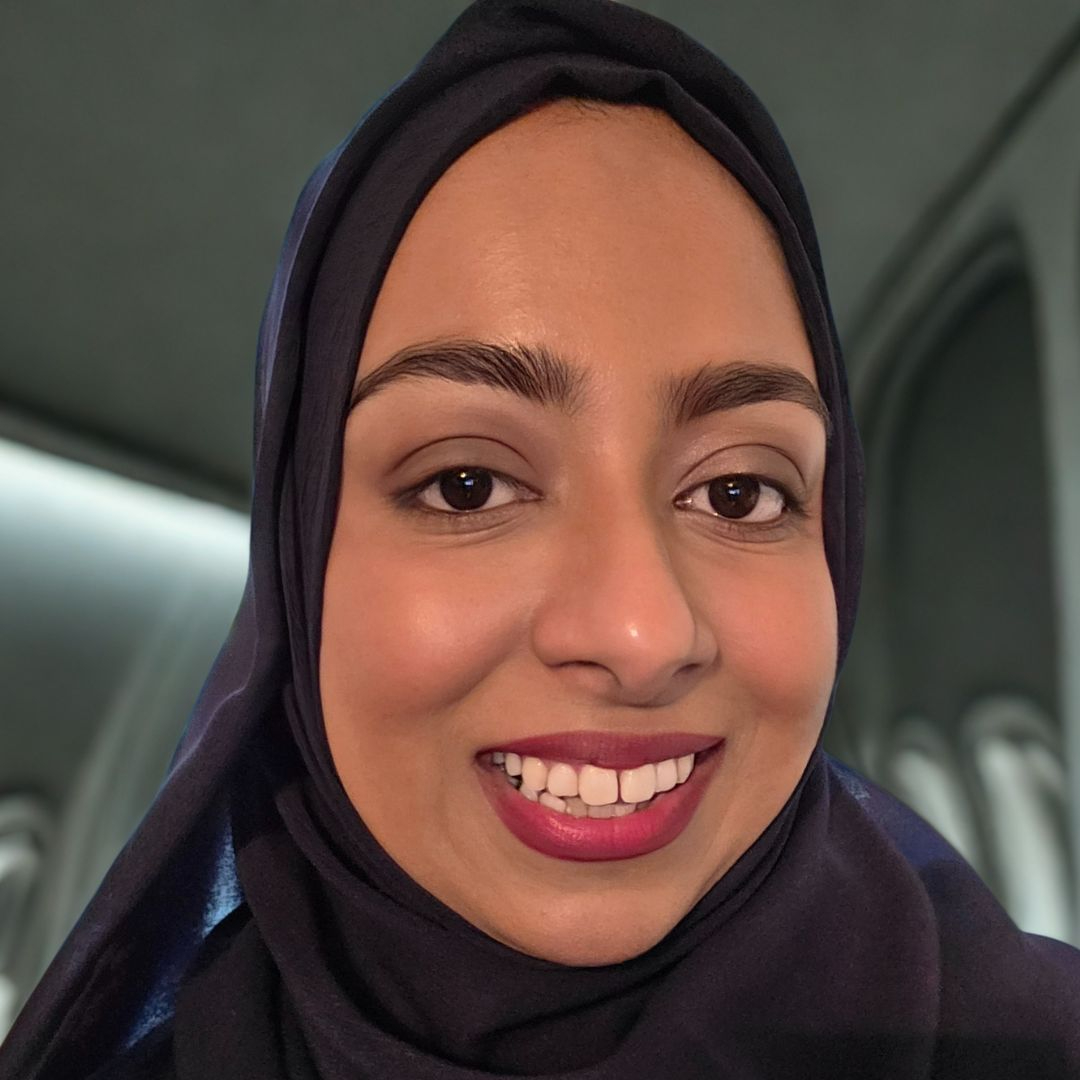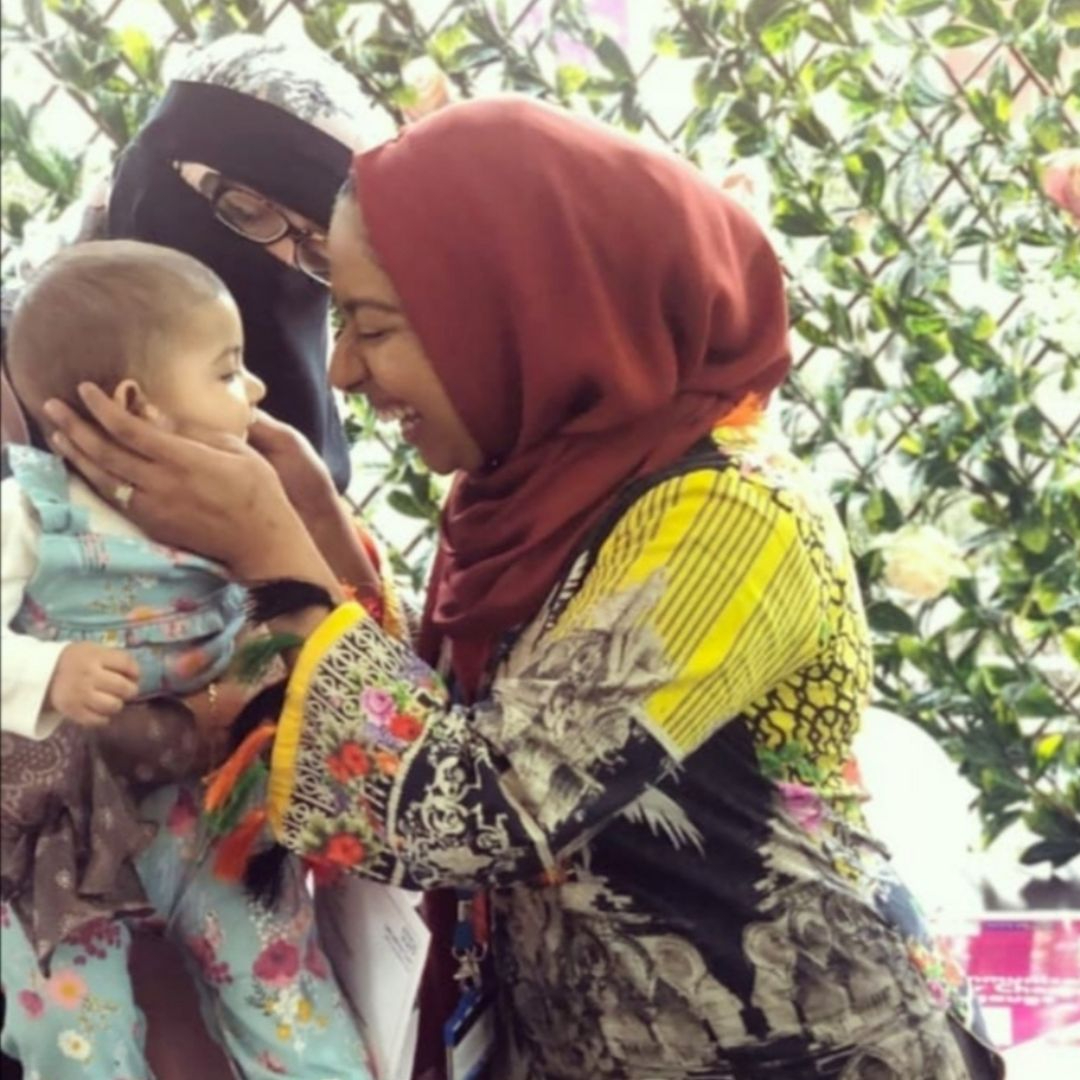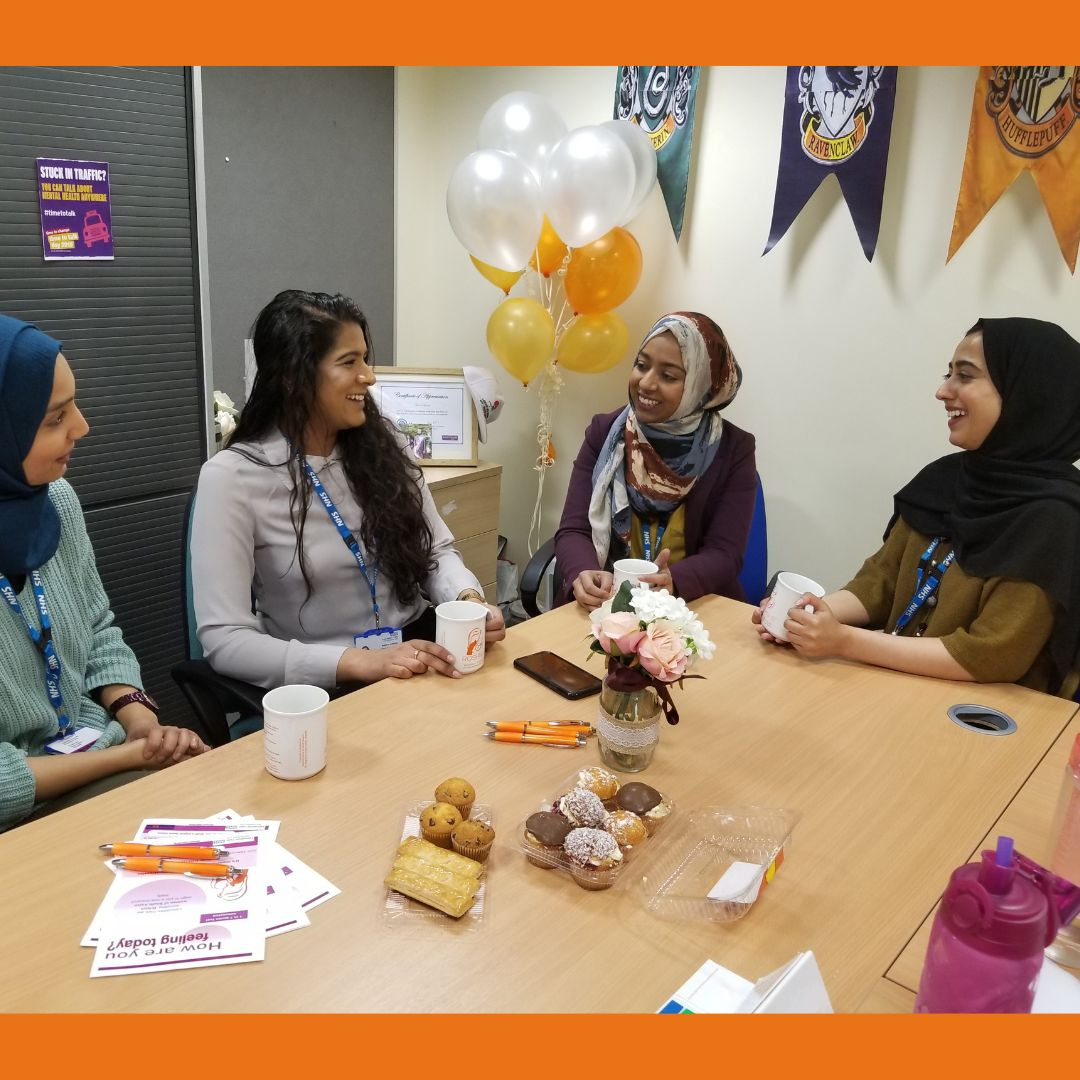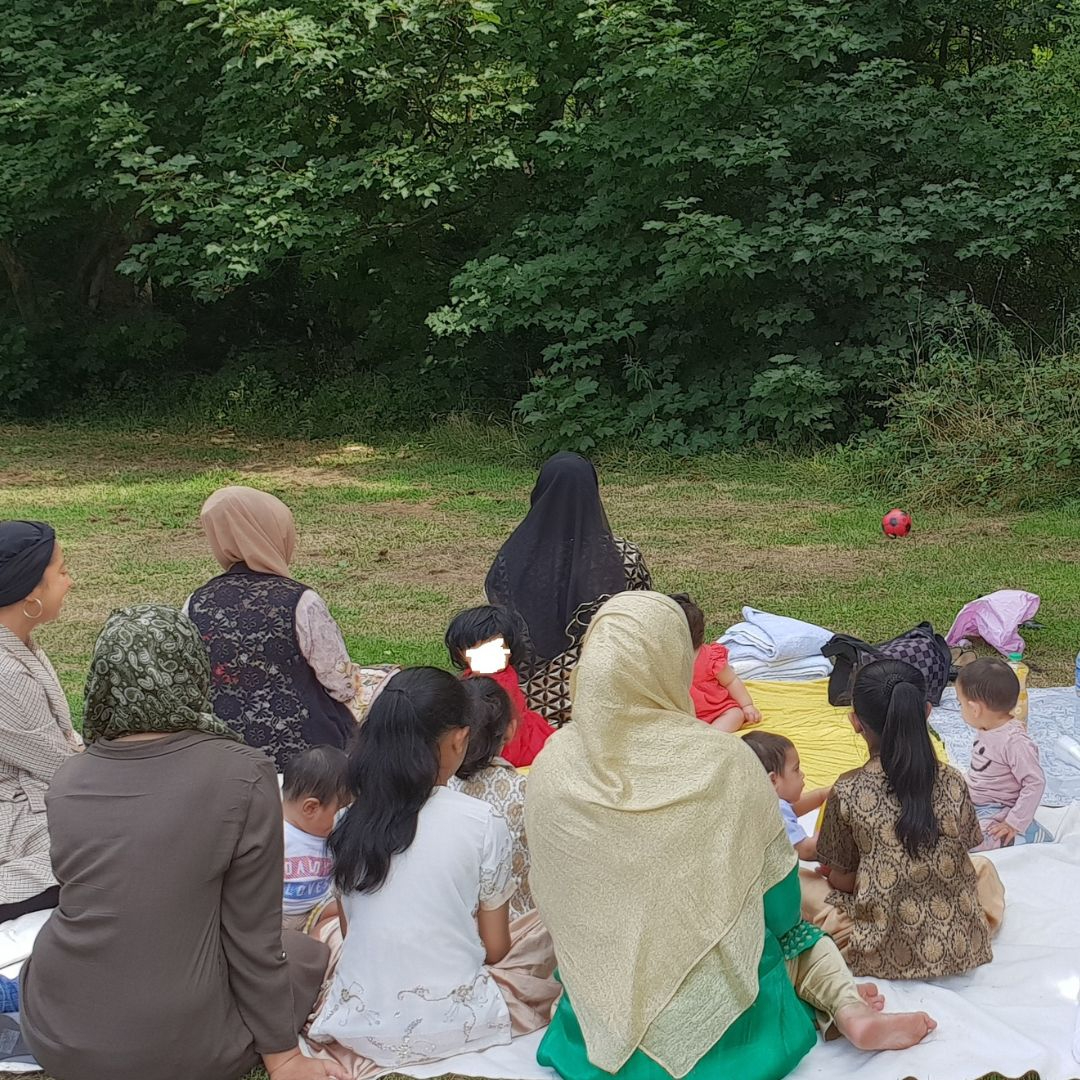This amazing lady is our Research Operations Manager Farah Lunat who not only is celebrating her Indian heritage this South Asian Heritage Month, but she is also leading ground-breaking research into providing the best possible culturally tailored psychological support for South Asian mums suffering post-natal depression.
It was Preston based Farah’s passion and research interest for maternal mental health that led to her becoming a research assistant on the ROSHNI feasibility study back in 2012. The ongoing pioneering study now known as ROSHNI-2, shines a light on the power of culturally tailored mental health support and has the potential to reduce health inequalities among South Asian communities.
Over 4,000 women took part across the UK, including many Lancashire based mums. The results were significant and showed that women who received the tailored support recovered more quickly and sustained their wellbeing over time, compared to those receiving standard care.
As joint lead author of the ROSHNI-2 study, Farah, who has a background in psychology, explains:
“As a British-born Indian Muslim woman and the eldest of five children in a South Asian family, I am intimately familiar with the complexities of navigating identity, faith and culture. As a teenager, I watched my own mother navigate pregnancy, postpartum and neonatal loss. Though she had lived and worked in the UK since she was 15, she lacked the confidence to advocate for herself. As I progressed through my studies and career, I reflected often on the limited or even total lack of support available to her. Even if services had been offered, they would not have reflected what our family needed. These experiences cemented my passion for women's health and later shaped my decision to dedicate my career to this field.
Farah continues:
“British South Asian women are the largest ethnic minority group in the UK and are statistically more likely to experience postnatal depression. Yet, they are significantly less likely to access mental health services. The reasons are complex, from language barriers and stigma to a lack of culturally sensitive care. With ROSHNI, together with partner researchers, we set out to change that. There was a focus on raising awareness of mental health, reducing ethnic disparities, tackling stigma, and adapting psychological therapies to meet the needs of ethnic minorities.”
The study showed the difference that a culturally sensitive approach to mental health care can make. It tested a culturally adapted talking therapy called the Positive Health Programme which was designed specifically for British South Asian mums. Eligible participants were South Asian women with depression, aged 16 and above who had a baby younger than 12 months old.
Researchers fluent in common South Asian languages including Urdu, Punjabi, Gujarati, Bengali, and Tamil engaged with faith leaders, who encouraged participation within their sermons. Research teams engaged directly with families and were able to be sensitive to cultural family dynamics at home, and attended community centre drop-ins.
Farah said:
“ROSHNI is about so much more than clinical outcomes; it’s a story of representation, inclusion and community empowerment. Ethnic minority communities that are so often labelled as ‘hard to reach’ are, in fact, ‘easy to ignore.’ Our study has proved that a culturally inclusive approach to research does work and has huge potential benefits for improving access to healthcare for underrepresented communities."
Reflecting on South Asian Heritage Month and its theme this year, Farah says:
“Yes the theme this year is ‘Roots to Routes’ which focuses on ‘exploring the rich journey of growth, and the evolving connections we make through generations. Through its work at the heart of communities, ROSHNI-2 has become part of the journey of many British South Asian families across the UK, demonstrating that the mental health care of the future must be informed by a nuanced understanding of individuals’ ‘roots’ both in the past and present.”
Farah whose role at LSCft looks to develop new Lancashire based research driven by clinicians, now delivers training around cultural competence and lessons learned from the research on engaging communities.
She says:
“We have now begun work on the next stage, ROSHNI-3 which will focus on breaking the stigma and addressing postnatal mental health in British South Asian families. ROSHNI is an example of what’s possible when we listen, adapt, and include and a reminder that heritage is not only something we celebrate, but something that here at LSCft, we are building upon to improve access to care.”
What an inspiring change-maker using research and dedicating her career to improving access to culturally tailored care, not just for South Asian Heritage Week, but co-producing culturally tailored care for South Asian mums who need it, which will in turn help to help improve life outcomes for their children.
